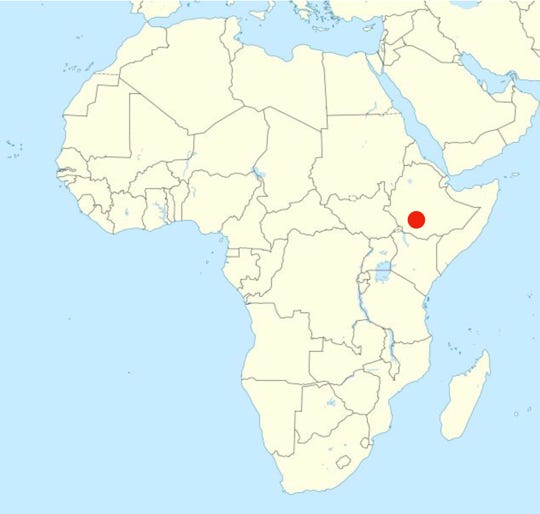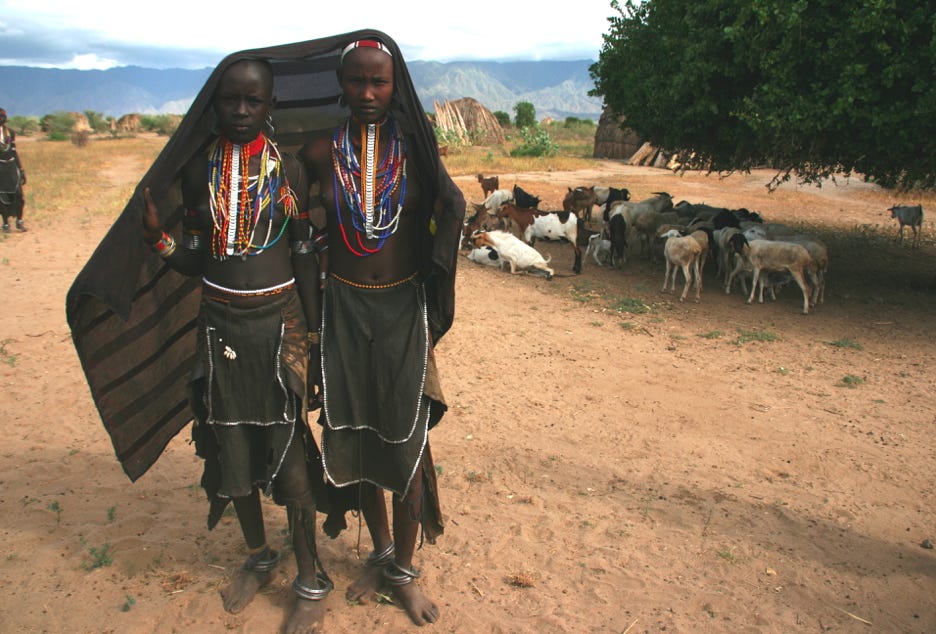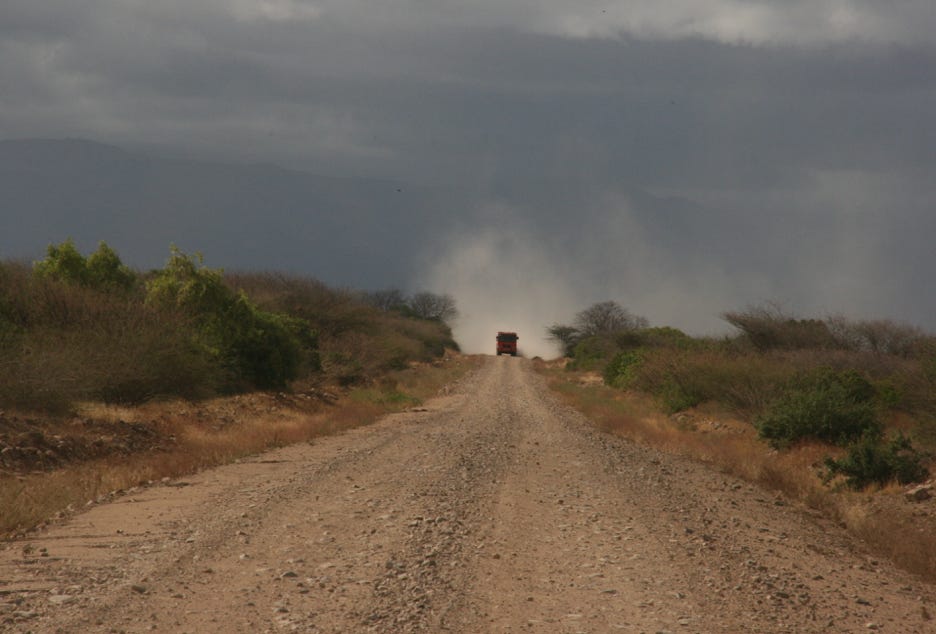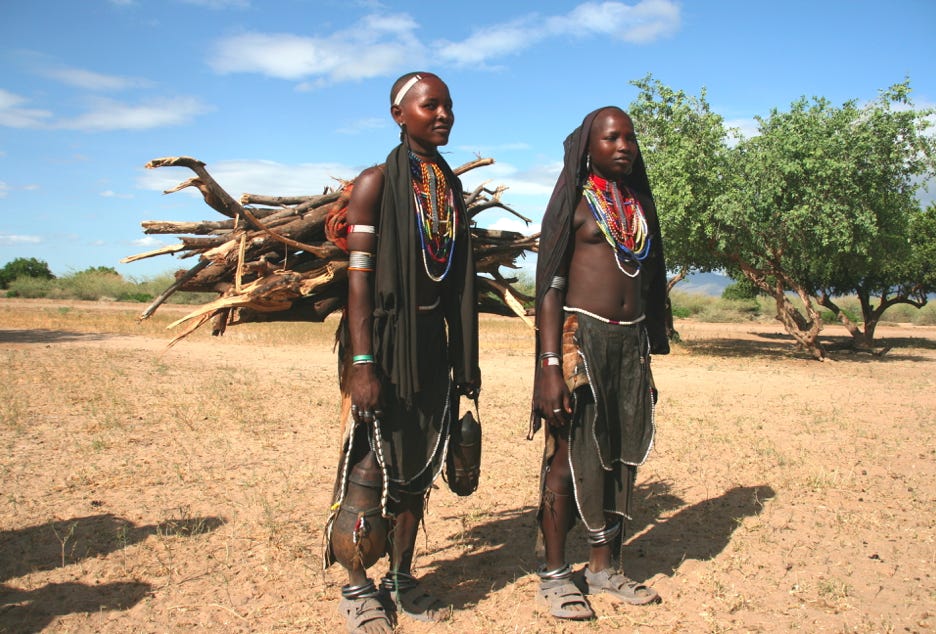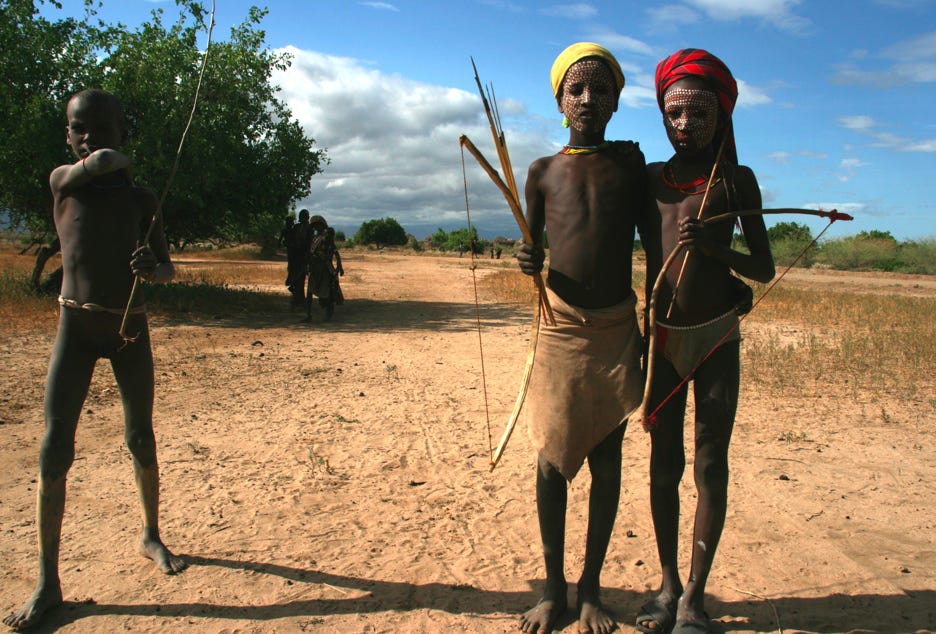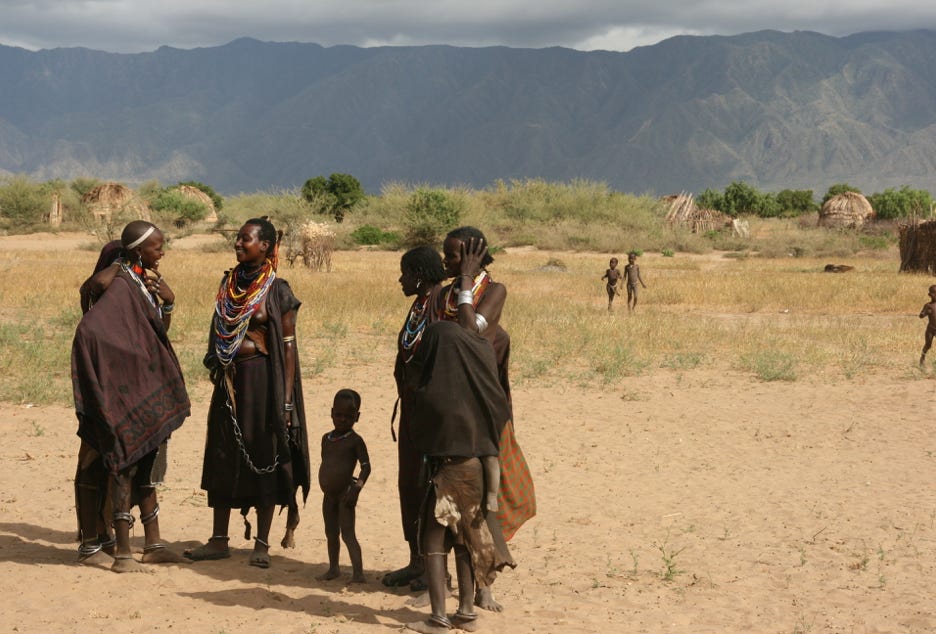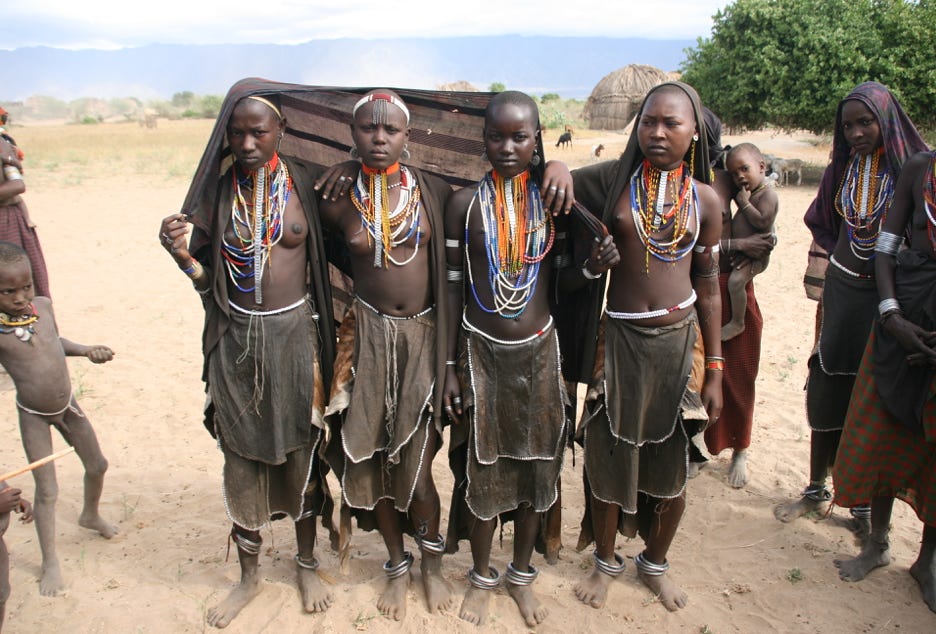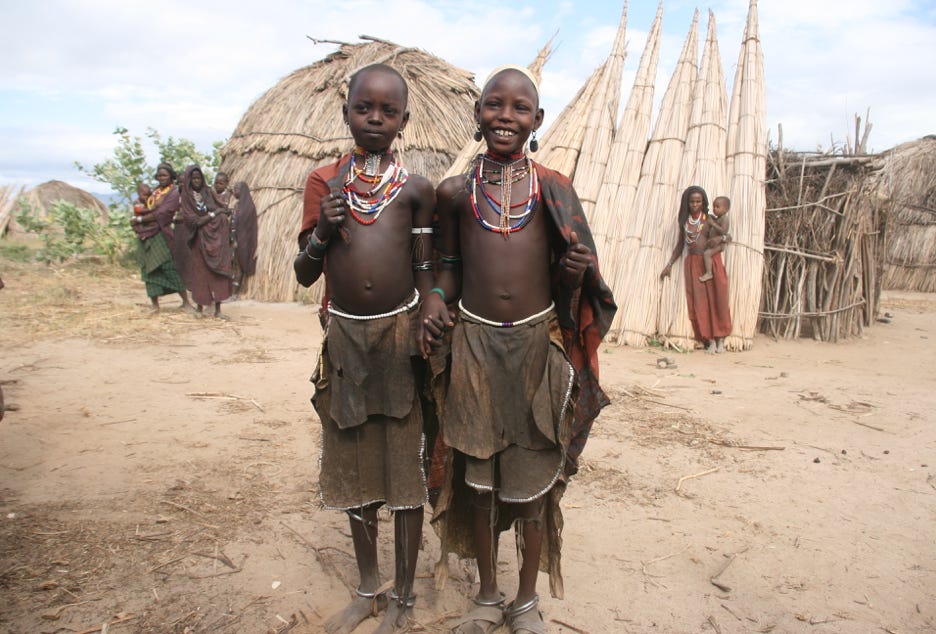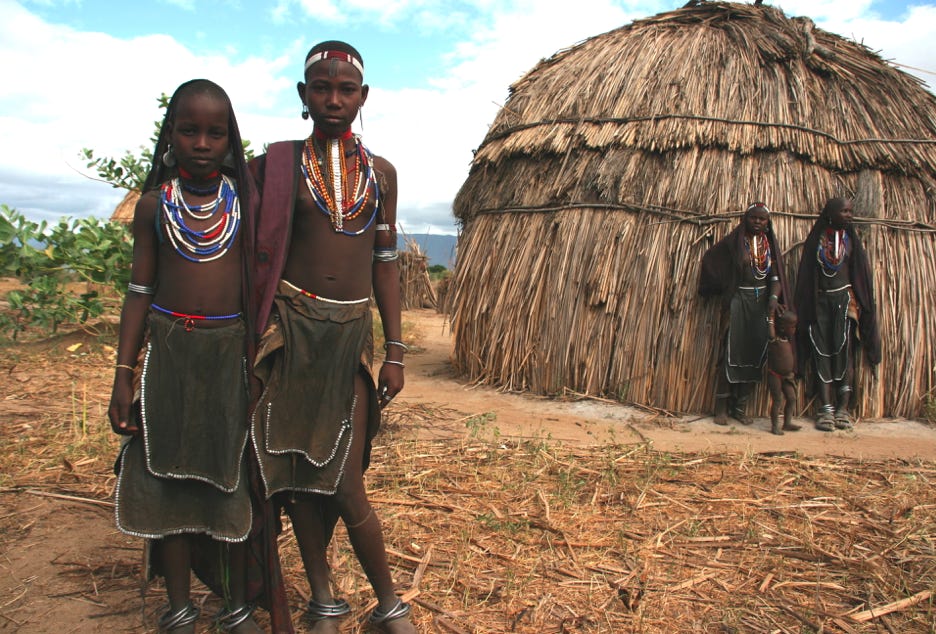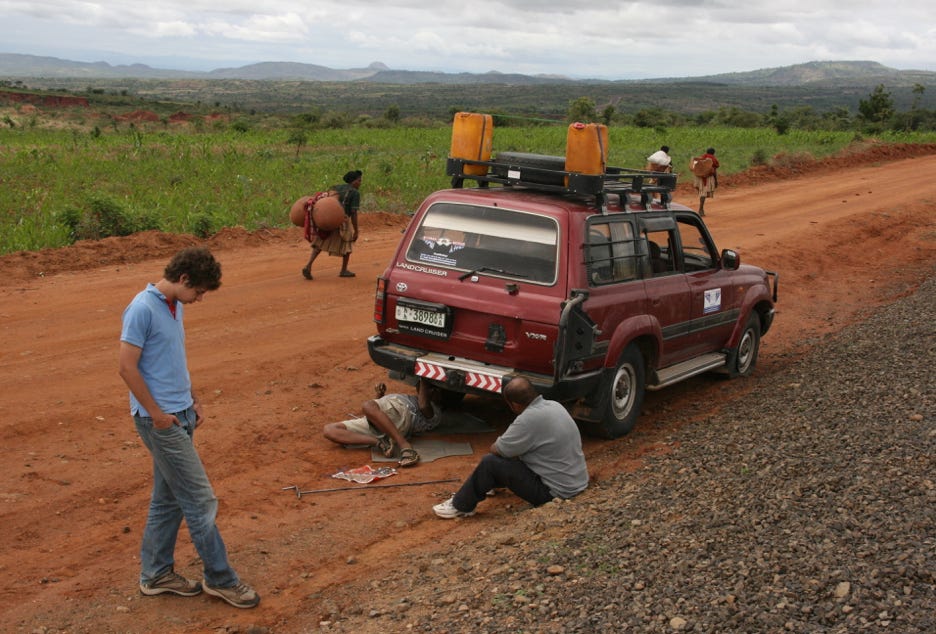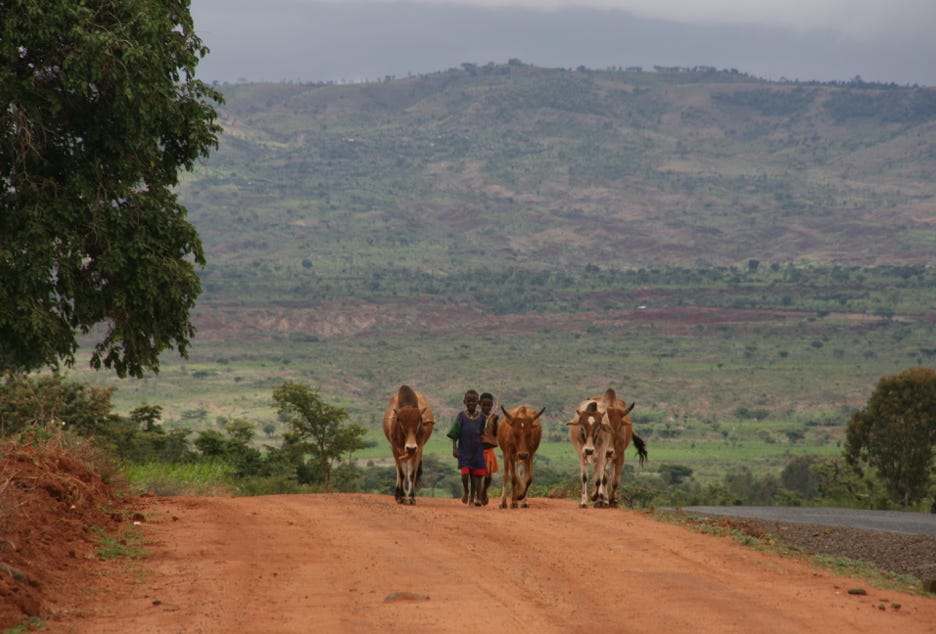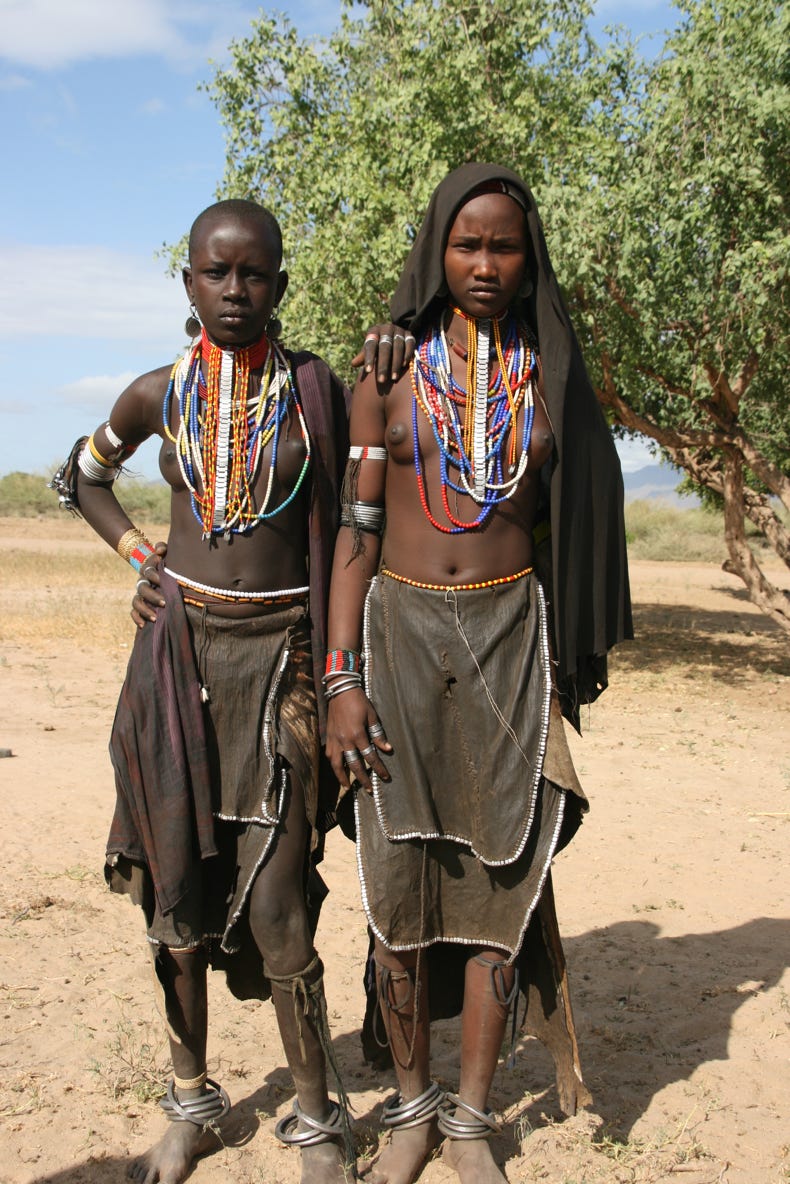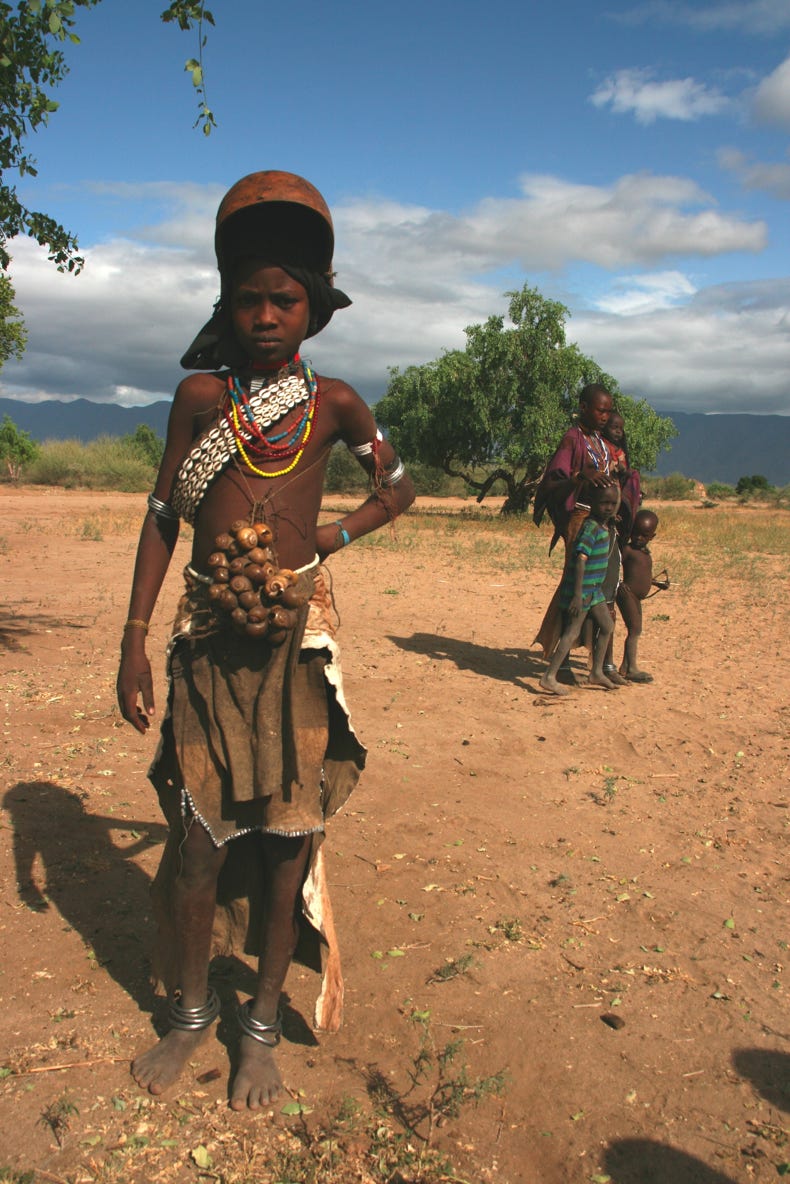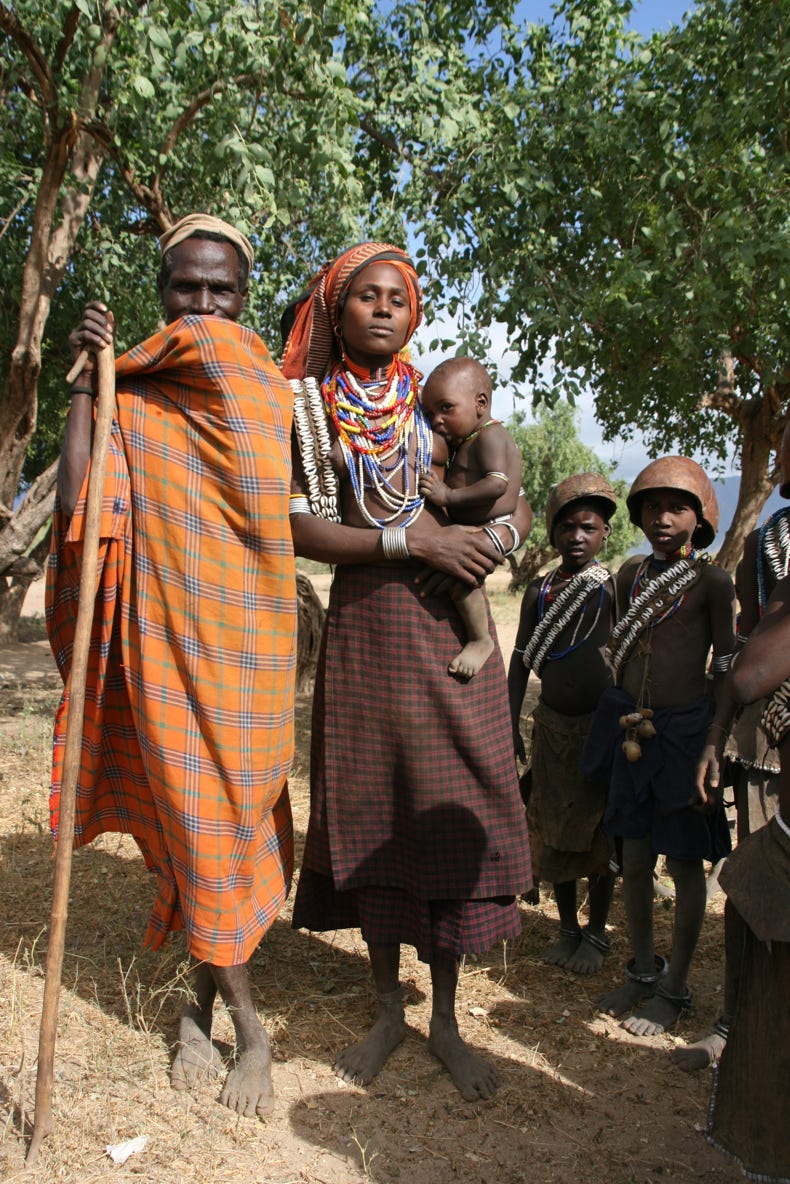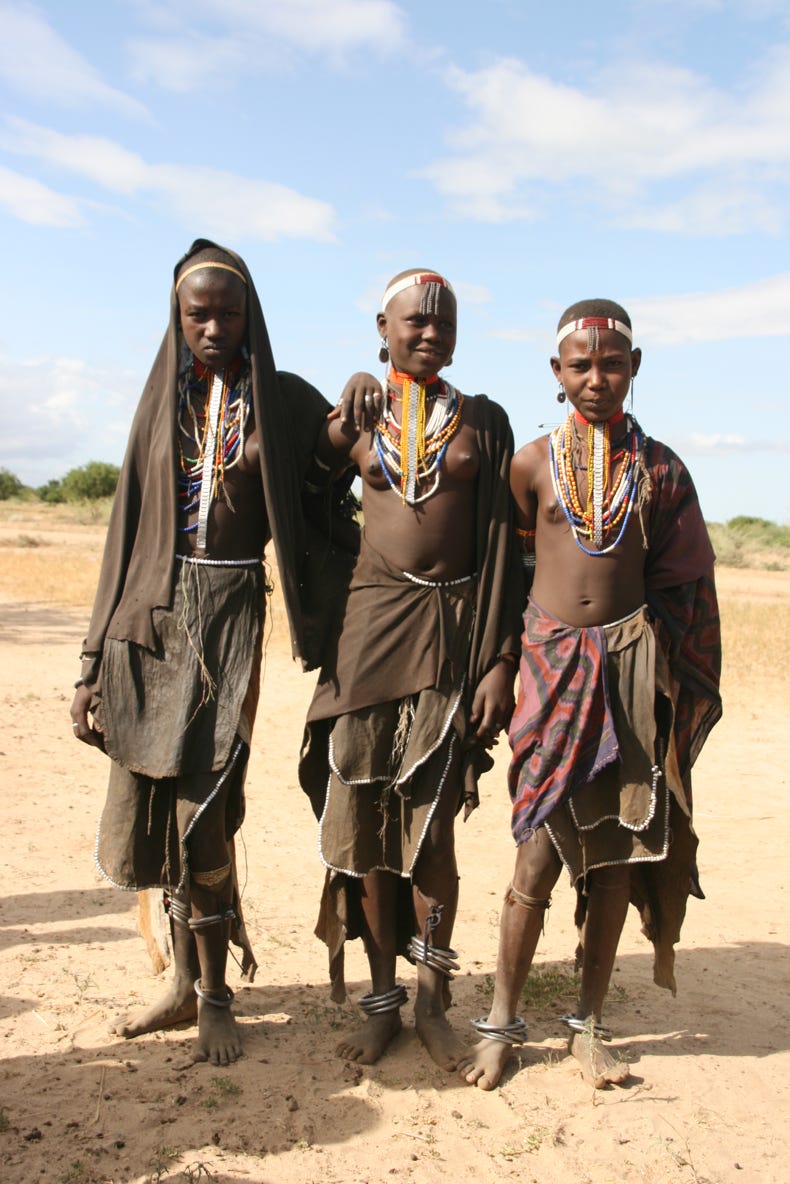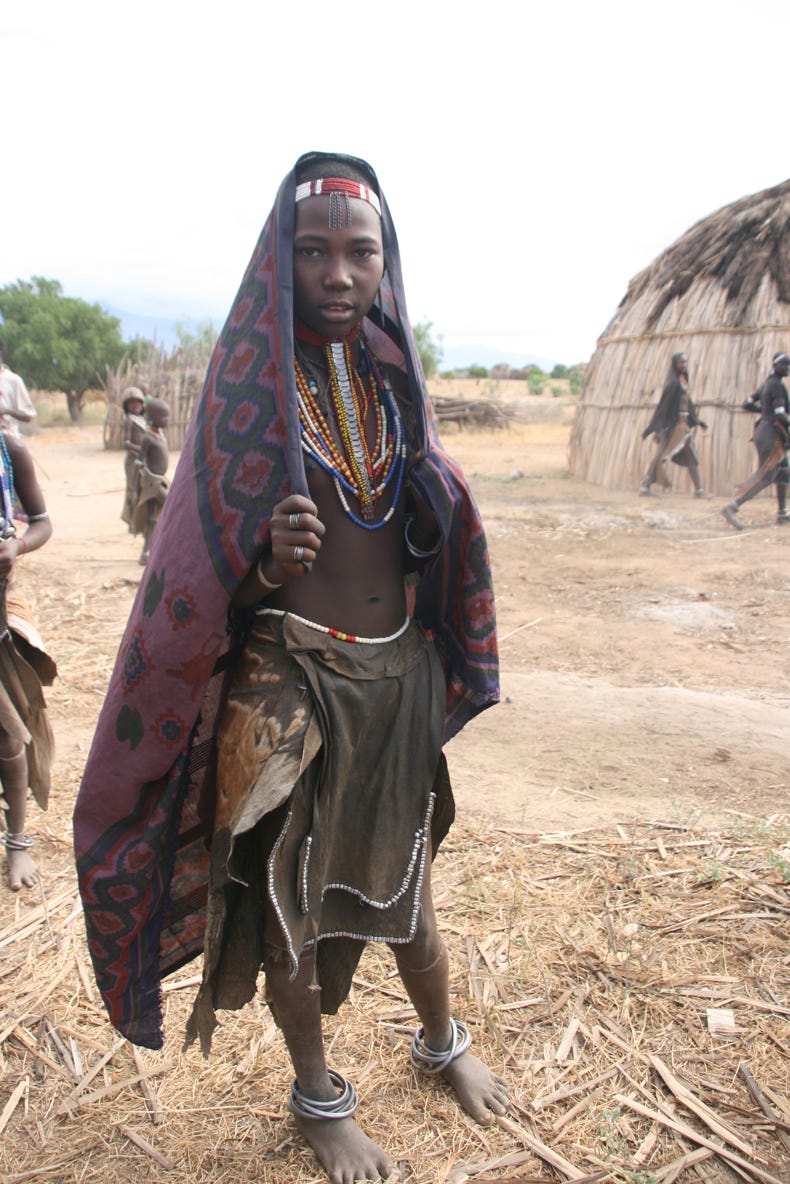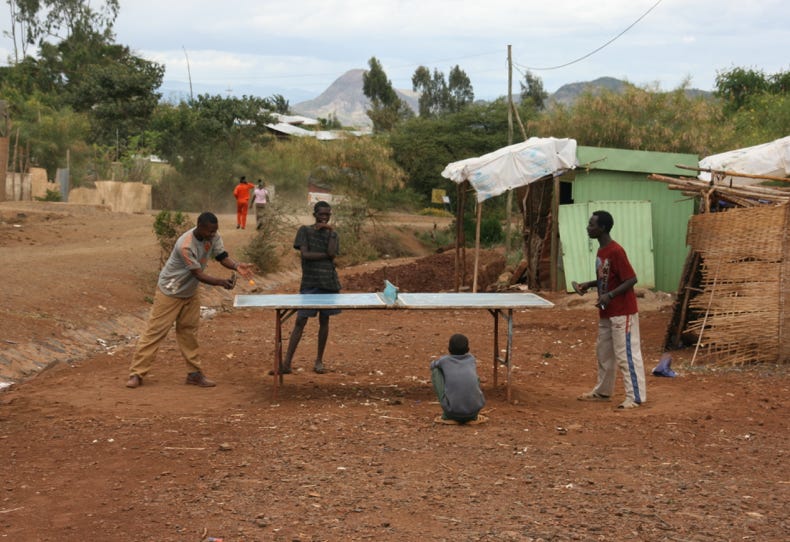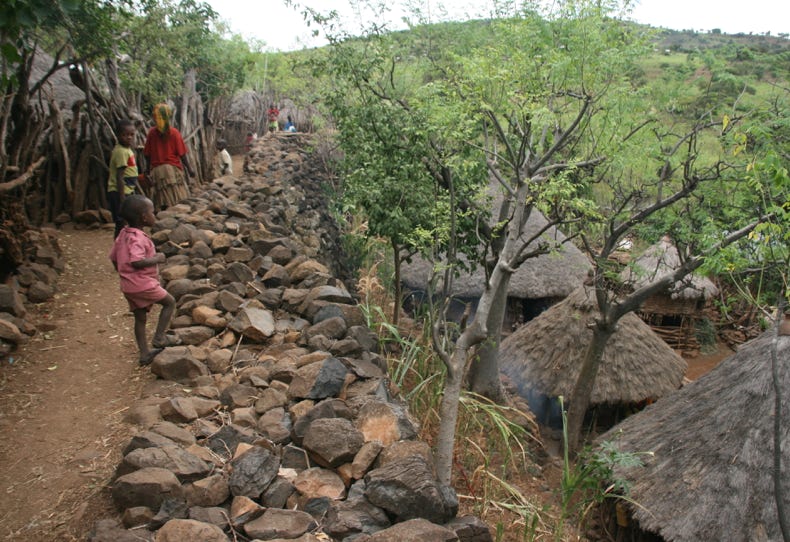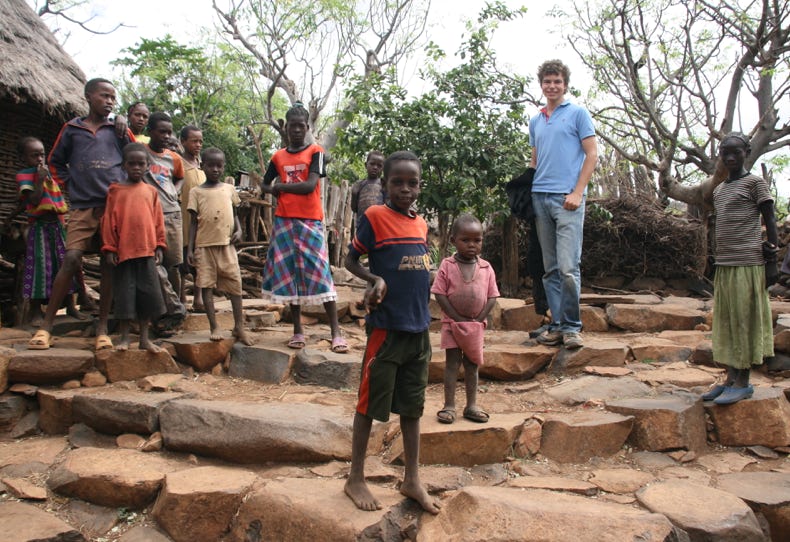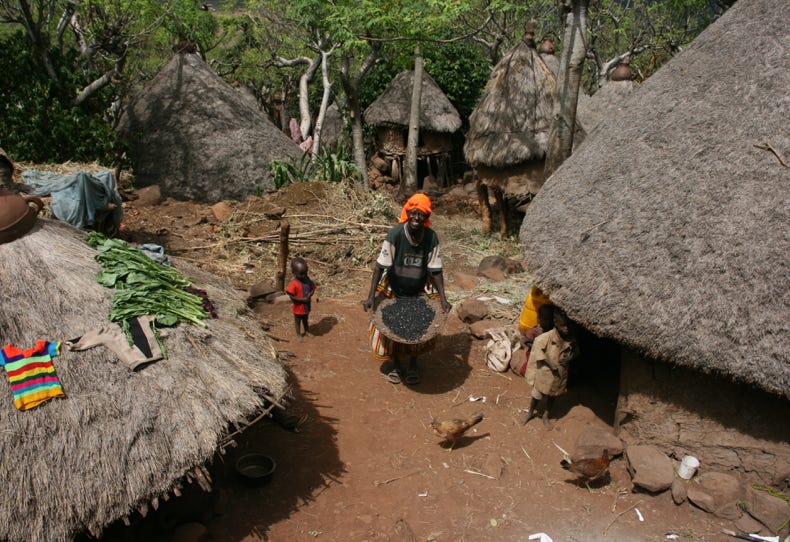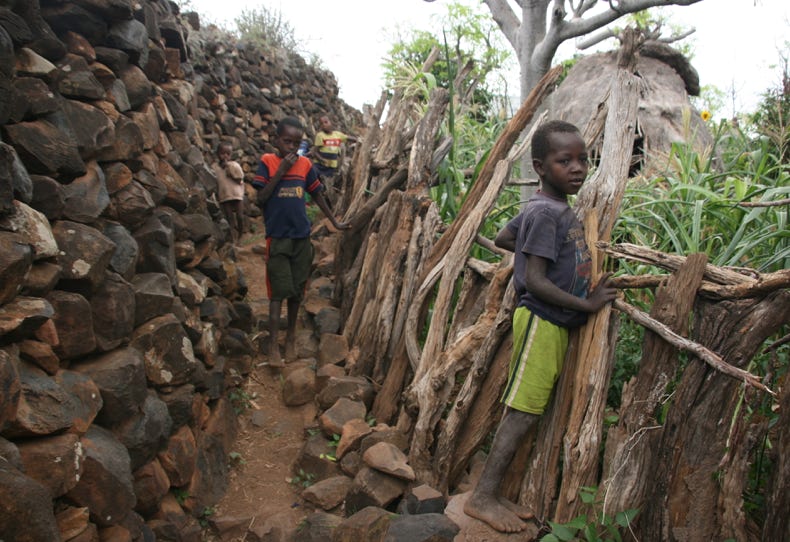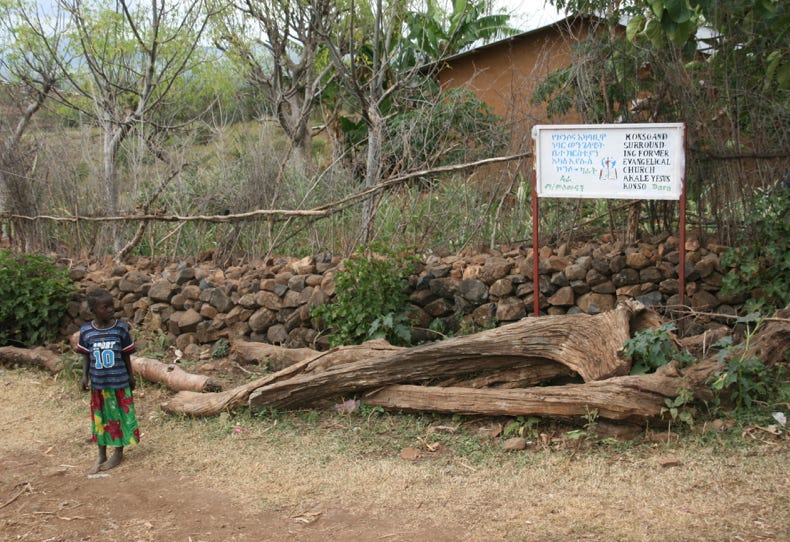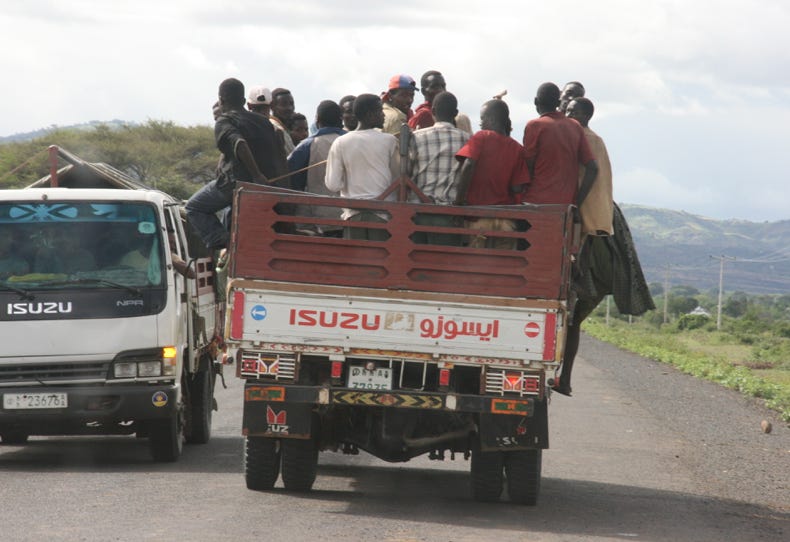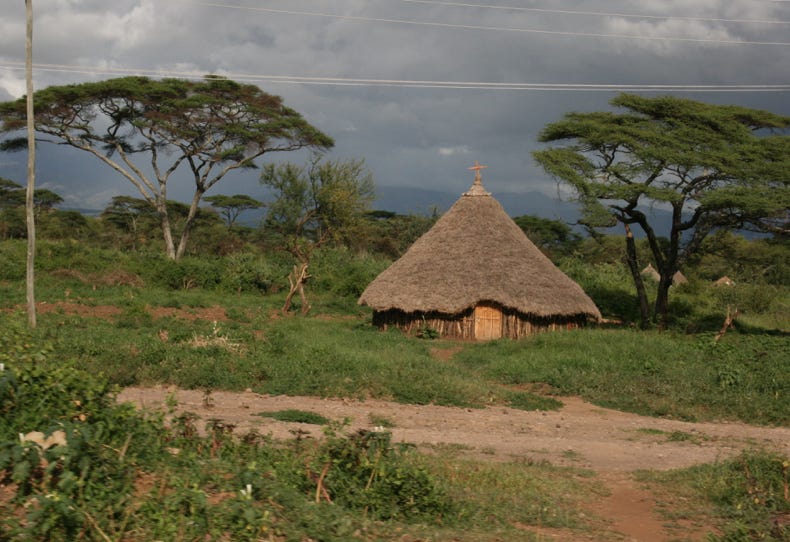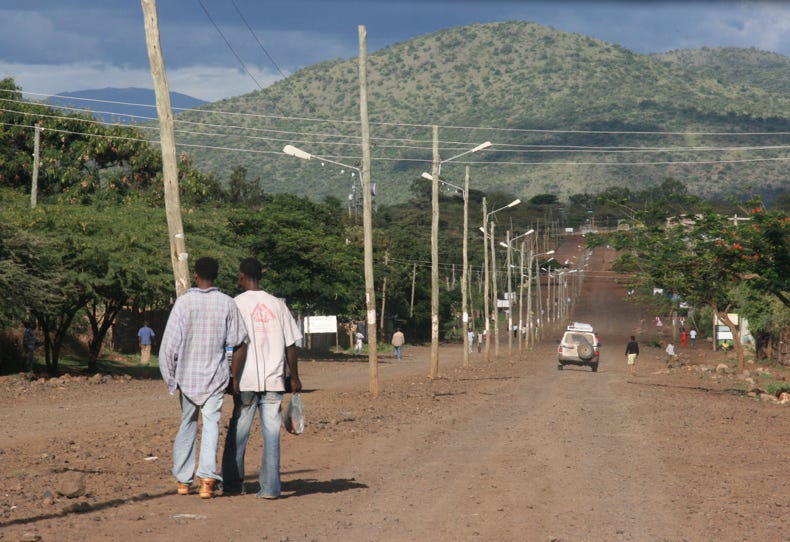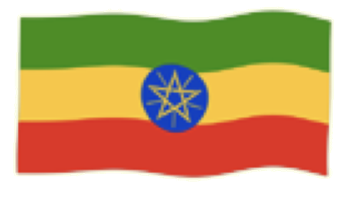
Konso and Arba Minch, Ethiopia

Today was our fourth day without running water - until the end of the day, that is, when we arrived back in in Arba Minch. Running water is great! Not only did water come from the tap, but it was hot water. Heaven!!!
Today was also the day we experienced our first shower of rain in southern Ethiopia - and also our second. Both were brief, so the concern about the possibility of drought and famine later this year continue to be major topics of conversation in Ethiopia.
Today was the day we experienced our first flat tyre - and also our second. It was the day we had our first (and so far only) push-start because of a flat battery.
Although Andrew found it fine, I had a very uncomfortable night in the tent in Turmi, waking several times with a painful back and neck. It was actually a pleasure to rise and start walking around at about 6:20 am. Having taken down the tents, we walked up to the same place for breakfast where we had dinner the previous night, breakfast comprising omelette with sparking mineral water, followed by tea (for Andrew) and coffee (for me), each with the compulsory pre-added 3 teaspoons of sugar in the tiny cups.
Having reached the limit of our travels into the remote parts of southern Ethiopia, today was spent on the first part of the two- day drive back to Addis Ababa. Today’s sector, from Turmi to Arba Minch, was almost all on unsealed roads, but in general the quality of the roads was better than we have experienced at any time during the past few days.
In order to arrive in Arba Minch before dark, we made only three stops. One was unplanned, to change a wheel that had a flat tyre. The other two stops were planned (although one was also used to change the other wheel that had a flat tyre).
The first planned stop was in a small village inhabited by the Erebora (or Ebora, or Arbore) people. Little research has been done on this relatively small tribe whose lands are centred in a semi-arid area about 70 kilometres east of Turmi, and who have a language that is unrelated to any other language in Africa (and the world, obviously). Their origins may be unclear, but it is known that they are pastoralists who raise cattle. Because this work is done by the men and boys, most of the people present in the village when we called in were women and girls, although a few men and young boys were also present. The villagers were very friendly and extremely keen to have their photographs taken, and of course to see their pictures on the digital display at the back of our cameras afterwards. While Andrew and I were taking photos, the driver changed the back left type of the 4WD which had punctured just before we arrived at the village.
After leaving the Erebora village, we drove until almost 1:00 pm to Konso, a town inhabited by people of the Konso tribe. We would have arrived considerably earlier than 1:00 pm, but an unanticipated stop to change the front right tyre delayed us by about 45 minutes.
Lunch in Konso comprised injera with goat meat and bean paste, washed down with a Coke and strong, compulsorily sugared coffee. Towards the end of lunch we met Choo-Choo, who was a 23 year-old Konso man who spoke excellent English and has trained as a guide to show people his village, called Dara, which was about 10 minutes walk from Konso. We agreed to go with Choo-Choo to see his village, and this was an excellent decision - Choo-Choo was very keen to help us understand Konso culture. He was both proud and knowledgeable of his village, and we had a great time exploring Dara.
Like many Konso villages, Dara is strongly Christian, having been evangelised by Swedish missionaries in the late 1800s and early 1900s. Dara has its own church with a Konso pastor, who replaced the former pastor (also a Konso) who died last month at the age of 110. When we arrived at the entrance to the village, a young man held out an open English language Bible and asked if I could read some of it. He seemed deeply moved as I gladly read him the first three verses of Mark chapter 6.
Choo-Choo was the 4th in a family with 10 children. He said that there has been 12 children in his family, but two had died. He mentioned that his parents’ marriage was monogamous, but that some Konso husbands had two wives, and in such cases it was not unusual for a family to have about 20 children. He mentioned that the normal age to marry is 18, and marriages are ‘always’ within the Konso tribe but between members of different clans (of which there are nine). However, as Choo-Choo has been educated, he has fallen outside this ‘system’, and is engaged to be married in August this year - interestingly to a girl who is not Konso (somewhat against his parents’ wishes).
Unique in Ethiopia, the Konso practice quite a sophisticated form of terracing to make use of the steep hillsides for farming. No irrigation or water management is involved; they reply simply on natural rainfall. Like all Konso villages, Dara is located on a hilltop and is surrounded by a high wall (about 4 metres high). This combination of situation and structure was originally adopted as defence from attack by people from nearby villages, and although such attacks no longer occur, the walls are still built as protection against marauding animals (such as hyena) that attack the villagers’ animals. Dara has about 950 inhabitants, and as the village has expanded, houses have been erected outside the fortified wall, after which the wall has been expanded to include them. In this way, Dara has developed separated walled sectors over the years.
Our walk around Dara revealed many of the activities involved in daily life, such as winnowing seeds, tending animals, gathering honey from hives in the overhead branches of the trees, and lots more. The Konso women wear very elegant, distinctive billowing, striped skirts that reminded me of old photographs taken on US southern cotton farms during the era of slavery in the mid-1800s; the universally filthy T-shirts that they wear above the shirts do detract somewhat from the image of elegance, however. A highlight of the visit to the village was seeing the community hut where boys live from the age of 12 until they are married (at age 18). They sleep on the upper level on animal skins, and the lower level is used for meetings.
Just in front of the community house is a series of curved steps where meetings are held every Sunday to settle disputes; as recommended in the Bible, the Konso prefer to settle disputes among themselves rather than go before the national courts. Just down another set of steps is a large open area that is used for community meetings (of both men and women) - today it was being used for an informal volleyball match. We were followed around the village by about 20 delightful children, who never stopped smiling, and who screamed in mock terror whenever a camera was pointed towards them.
It was a pleasure reaching Arba Minch after today’s long drive and several days in the dusty wilderness areas. After a cleansing shower, we shared a great dinner on the terrace overlooking the Rift Valley lakes. At first it was a bit confusing to be confronted with a menu - there has really been no choice to make in food for the past four days. I chose fish soup followed by Chicken Hunter Style to see whether the advice we received during our last visit was indeed true (that Chicken African Style and Chicken Hunter Style are in fact the same). They are. Andrew chose minestrone soup followed by fish kebab with hot sauce. Both meals were delicious.
Arba Minch is Ethiopia’s malaria capital. So far Andrew has managed to avoid getting bitten by mosquitoes. I was bitten twice during our last visit. Fortunately it was in the middle of the day when malarial mosquitoes are
supposed to be dormant (they are said to be active at dawn and dusk), so hopefully there will be no consequences. I couldn’t believe how fast the mosquito was in attacking me - the two bites occurred within about 20 seconds while I was using the toilet. For the record, and to avoid any grubby speculation, I was bitten on the back of my hand, on my knuckles - not elsewhere.
